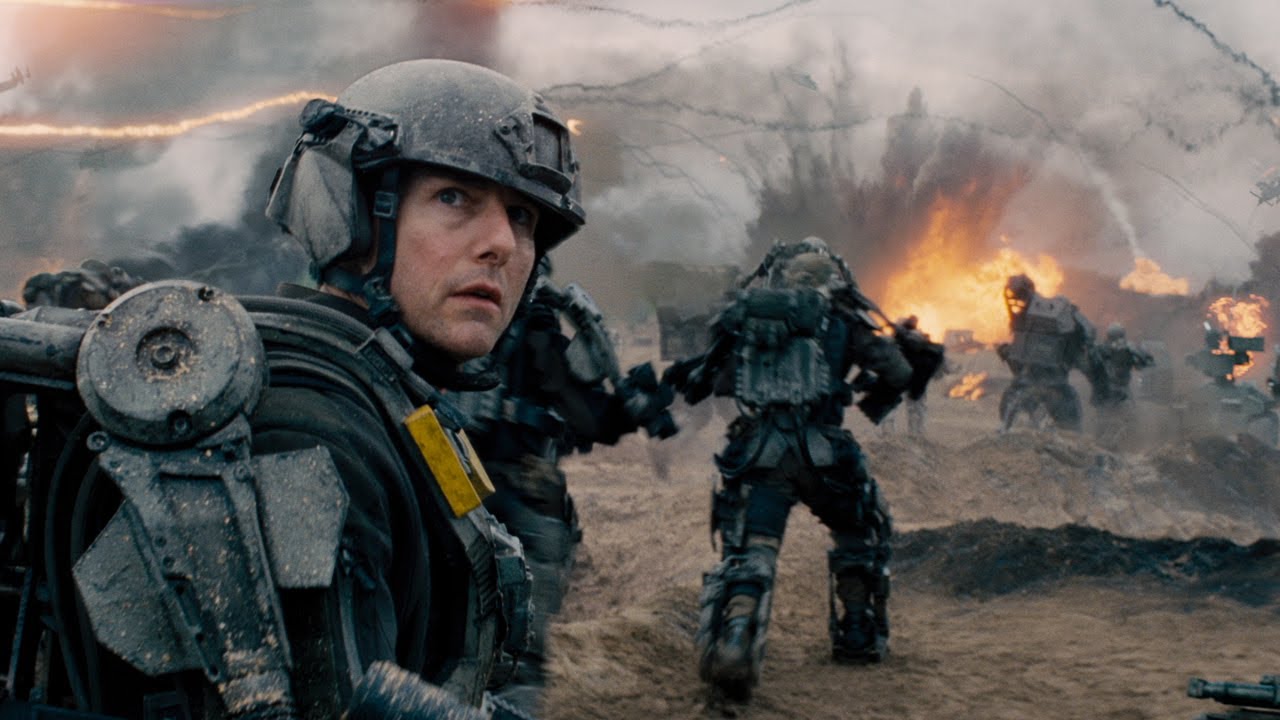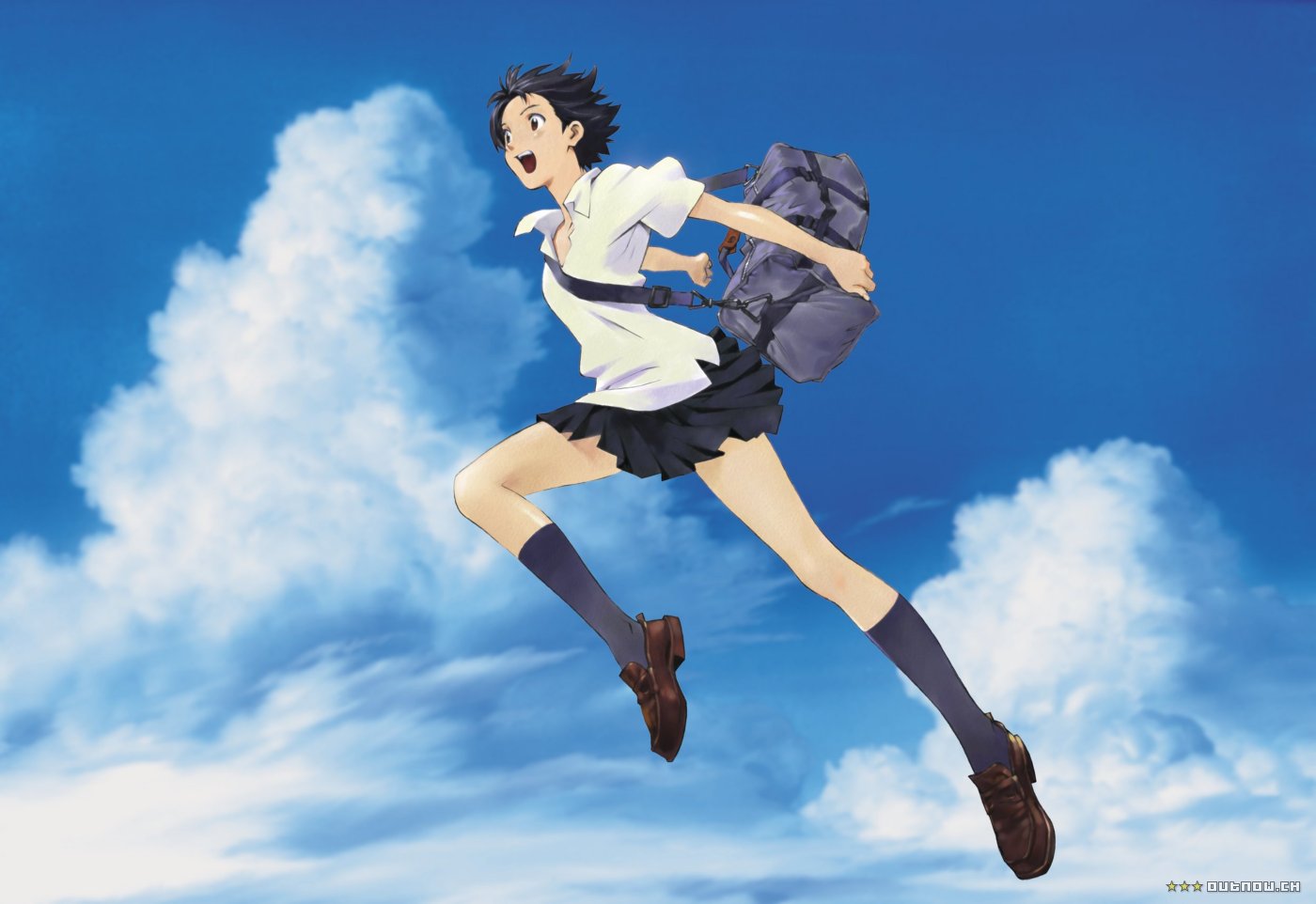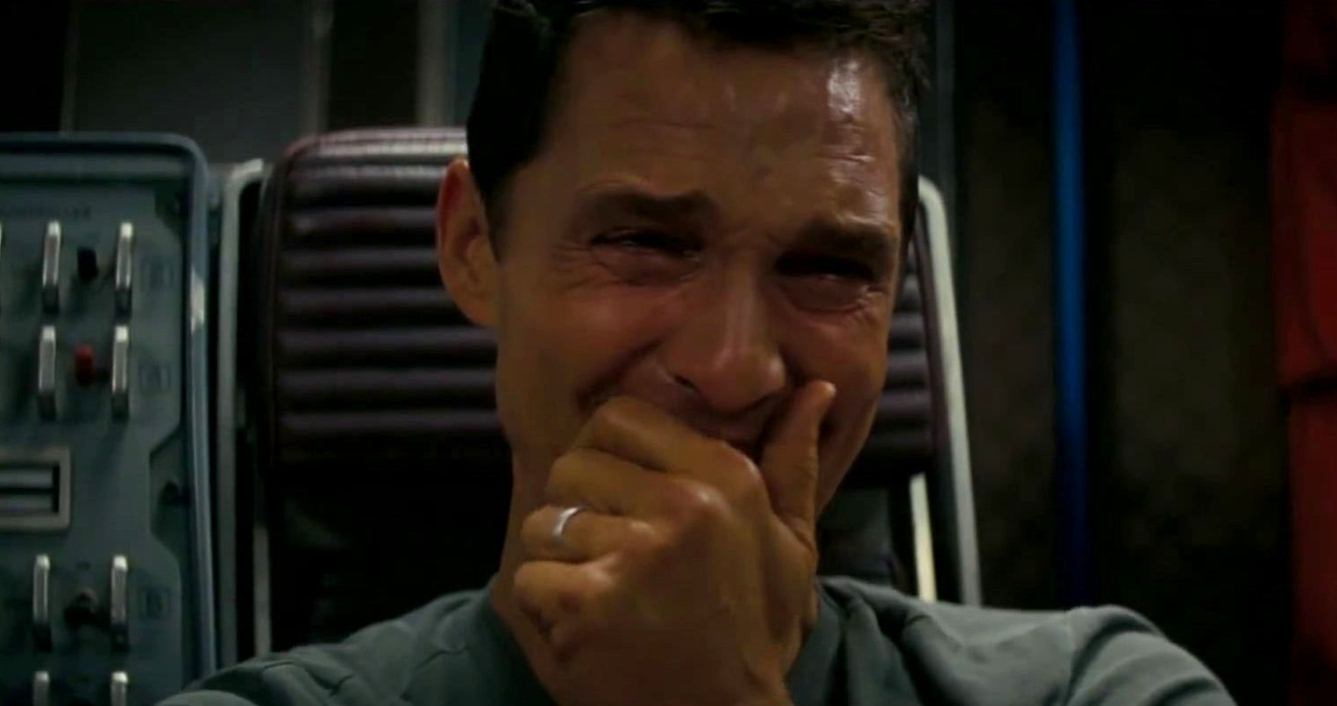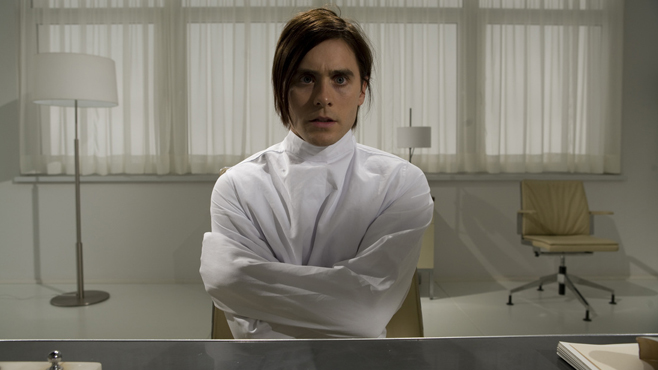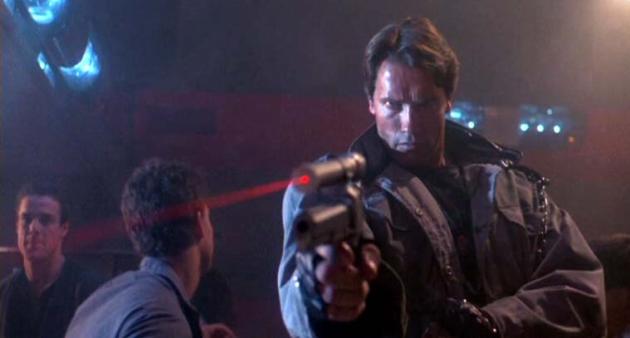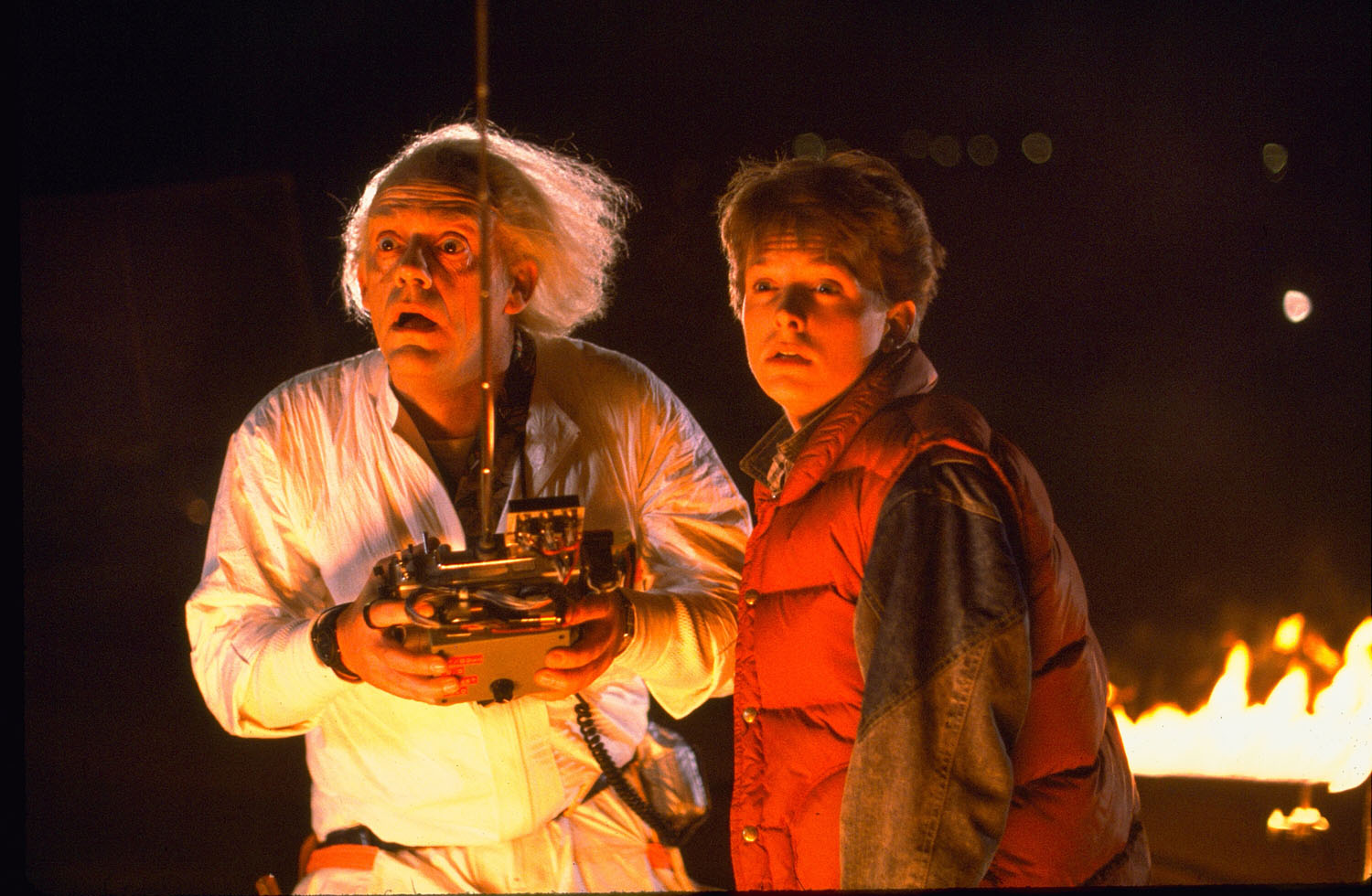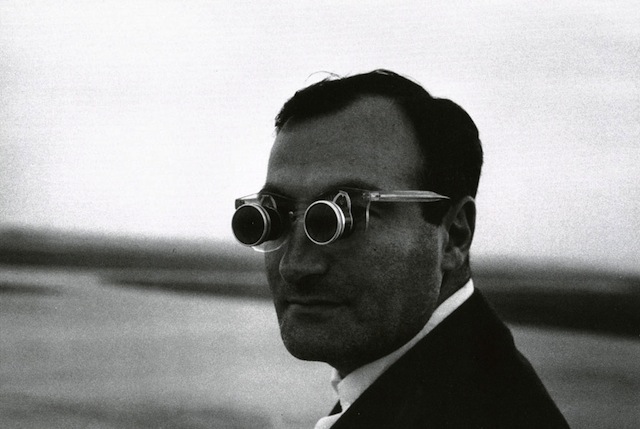7. Edge of Tomorrow (Doug Liman, 2014)
Adapted from the Japanese manga/light novel All You Need Is Kill by Hiroshi Sakurazaka, Edge of Tomorrow is the Groundhog Day of science fiction action films, directed by Doug Liman and starring Tom Cruise and Emily Blunt.
Major William Cage (Cruise) works for the media department of the military as an alien race of “mimics” has been waging war on mankind in Europe. Recently Special Forces soldier Rita Vrataski (Blunt) has been the first to gain some major victories against the aliens with the help of a new hi-tech battle suit, which all soldiers are now wearing.
The moment Cage hits the beaches of Verdun though, it becomes apparent that the aliens knew about the would-be surprise attack and he is killed instantly. To his surprise however, he wakes up and starts the very same day again. Slowly but surely he perfects every day and together with , they will try to stop the alien threat.
Edge of Tomorrow just about gets everything right. It has a great concept, which is well worked out in the screenplay that balances big thrills and comedy nicely, the design of the aliens is spot-on and the CGI bringing them alive looks great and the film uses editing to great effect.
Tom Cruise plays against character as a cowardly inept fool whilst Emily Blunt is simply kick-ass. They are supported nicely by Brendan Gleeson, Noah Taylor and especially Bill Paxton, who seems to be having a lot of fun with his role in addition to a fun group of rag-tag commandos. Simply put, Edge of Tomorrow is a lot fun and a pleasant surprise for sci-fi enthusiasts.
6. The Girl Who Leapt Through Time (Mamoru Hosoda, 2006)
Inspired by the novel of the same name by Yasutaka Tsutsui, and a sequel of sorts to it, but featuring a different storyline and characters (with the aunt of the protagonist in the movie having been the lead character in the book to tie the two together), The Girl Who Leapt Through Time is a romantic comedy drama with, as the title suggests, science fiction elements. The film is directed by Mamoru Hosoda and was the feature film debut, albeit voice only, for Japanese actress Riisa Naka.
Makoto Konno (Naka) is a teenage girl who lives with her parents and sister in Tokyo and hangs and plays baseball with her friends Chiaki and Kosuke. One day in school she finds an odd looking object and soon after discovers that she has gained the ability to rewind time. At first, she uses her new found power for frivolous things like not being late at school or saving herself from embarrassment when Chiaki professes his love for her but soon she comes to realise that altering time can have serious consequences.
On top of that she also discovers a numbered tattoo on her arm, which counts down the amount of “time leaps” she has left. When she fears that her friend Chiaki is onto her abilities, she uses her last leap to go back in time before she thinks he caught on but the realises too late that she has made a grave error, until her friend Chiaki confesses a secret of his own.
With bright colorful animation and a clever concept, which combines a coming-of-age tale with comedy, romance and time travel, The Girl Who Leapt Through Time is an ingenious anime with a lot of heart. Whilst director Mamoru Hosoda had already worked on Digimon and Samurai Champloo for TV and also had one previous feature under his belt, it was this film that really put him on the forefront of Japanese anime directors and he has delivered two other great feature length animes since.
The film won six awards at the Tokyo Anime Awards, including Best Film, Director, Story and Screenplay, whilst also picking up Best Animated Film at Stiges, the Japanese Academy Awards and the Mainichi Film Concours.
5. Interstellar (Christoper Nolan, 2014)
Written by Jonathan and Christopher Nolan and directed by the latter, Interstellar is a science-fiction film in the truest sense of the word and stars Matthew McConaughey, Anne Hathaway, Jessica Chastain and Michael Caine.
Somewhere in the future, the world has turned on humanity and famine is widespread. As it’s obvious that the planet will no longer be able to sustain human life, various missions have been sent through a recently appeared wormhole near Saturn and although communication with those missions has been lost, enough data has been sent back to suggest their might be three planets on the other side which might be habitable.
As a result former NASA pilot Cooper (McConaughey) is recruited by professor Brand (Caine) to follow those earlier missions and confirm which planet might be most suitable, meaning he will have to leave his family son and daughter behind on earth and possibly never see them again in order to save them and all of mankind in the process.
The most ambitious big budgeted sci-fi film to come along in a very long time, Interstellar is a true breath of fresh air. Dealing with complex concepts and ideas, the screenplay always makes sure the story is easy to follow (even when plenty of the concepts might only be rudimentary grasped) whilst also balancing spectacle, intimate heartfelt drama and high concept.
All cast members give credible performances and special mention should go to the robotic character TARS (voiced by Bill Irwin) whose dichotomy between highly impersonal design and personality works wonders. Also of note is the fact that the film looks less slick and more grounded than previous Nolan efforts, courtesy of cinematographer Hoyte van Hoytema who replaced Nolan regular Wally Pfister on Interstellar, which benefits the film greatly.
Whilst the filmmakers do make a few questionable narrative choices, they are easily forgiven in the grander scheme of things here. If you believe that sci-fi films have to have laser battles and space fights to be successful Interstellar might not be for you but everybody else with an interest in the genre should find a lot to love here. A singular experience.
4. Mr. Nobody (Jaco Van Dormael, 2009)
Written and directed by Belgian director Jaco Van Dormael, Mr. Nobody is a philosophical science fiction drama starring Jared Leto.
Nemo Nobody (Leto) is a 118 year old man and the last mortal on earth after as the rest of the population has obtained quasi-immortality. On his deathbed, he recounts his life, which has been far from ordinary, to a psychiatrist, who puts him under hypnosis, as well as to a journalist, who is curious about the life of the last mortal on earth.
It turns out that at the age of nine his parents divorced and Nemo was forced to chose between them, which meant staying with his dad in England or going with his mum to the United States. But Nemo refused to chose and thereby left open many possibilities, all of which he seems to have lived. He recounts his three major life paths, involving different partners and endless different details.
An impossible film to describe accurately in few words, Mr. Nobody is a highly original spin on science fiction and time travel and filled from start to finish with stylistic flourishes and narrative wizardry. Jared Leto provides a fantastic central performance and he is supported by a highly talented cast, amongst them are Sarah Polley, Rhys Ifans, Diane Kruger and Juno Temple.
The film also features outstanding special effects and despite its intricate plot, fractured narrative and grand ambitious themes, it manages to remain focused and crystal clear.
Mr. Nobody won the audience award for Best Film at the European Film Awards, six Magritte Awards in Belgium, including Best Film, Director, Screenplay and Cinematography and was nominated for the Golden Lion at the Venice Film Festival, where it received a ten minute standing ovation. A must-see film for science fiction fans as well as all of those who like their films metaphysical.
3. The Terminator (James Cameron, 1984)
Whilst it wasn’t the feature film directorial debut of James Cameron (that honor goes to the cheap horror exploitation flick Piranha Part Two: The Spawning), The Terminator is the movie that put the future superstar director on the map whilst simultaneously making Arnold Schwarzenegger one of the greatest actions stars of the eighties and early nineties.
The movie starts in the year 2029 as Los Angeles has been reduced to rumble after a post-apocalyptic event and mankind is ruled and hunted by all-powerful machines. From this future a Terminator (Schwarzenegger), a seemingly unstoppable cyborg, is sent back to 1984 to kill Sarah Connor (Linda Hamilton) as she is destined to give birth to a son named John, the future leader of the human resistance against the machines.
In an attempt to stop this from happening, the future John sends fellow resistance member Kyle Reese (Michael Biehn) back to 1984 with a mission to protect his mother from the ruthless killing machine. After the Terminator systematically kills the first two Sarah Connors he finds in the LA phone book, the hunt is on for the last and right woman with that name.
Together with Reese, Sarah, who at first has trouble believing what is happening to her, tries to stay one step ahead of the indestructible cyborg whilst falling in love with the man who is trying to save her.
Made on a relatively small budget, James Cameron squeezed every dollar he had to the max and delivered a truly kinetic and at its time groundbreaking action film. A clever screenplay (co-written by Cameron based on a nightmare he had whilst in post-production on Piranha II), very effective special effects for it’s budget, a memorable soundtrack and plenty of nail-biting action scenes made the Terminator a surprise box-office as well as critical hit.
Whilst its sequel, for which Cameron, Schwarzenegger and Hamilton all returned in 1991, was a groundbreaking film in its own right, the first Terminator is far more gritty and benefits tremendously from Schwarzenegger playing the virtually dialogue-free bad guy.
Often imitated but never topped, The Terminator is a genuine classic sci-fi action film with a great central time-travel premise. The film was nominated for seven Saturn Awards by the Academy of Science Fiction, Fantasy & Horror Films, winning three for Best Science Fiction Film, Writing and Make-Up. Still one of Cameron’s and Schwarzenegger’s best and the film that coined Arnie’s eternal one-liner: “I’ll be back”.
2. Back to the Future (Robert Zemeckis, 1985)
Both a classic science fiction film as well as one hell of a comedy, Back to the Future turned Michael J. Fox from a TV sitcom star into genuine movie star. This Steven Spielberg produced film also served as the real breakthrough for director Robert Zemeckis and remains one of the most beloved blockbusters of the eighties.
Marty McFly (Michael J. Fox) isn’t having the greatest family life. His father, nerdy George (Crispin Glover), is constantly pestered by his bully supervisor Biff (Thomas F. Wilson) and his mother Lorraine (Lea Thompson) drinks too much and reminisces about a better past. He does however have a great friendship with the nutty scientist/inventor Doc (Christopher Lloyd).
Doc has been working on a time machine and the night he unveils it, circumstances lead Marty to inadvertently be zapped back to 1955. There he meets the younger version of his parents, before they got together, but his presence complicates matters as his mum develops a crush on him, endangering his own existence in the future. Now Marty needs to make sure his parents will end up together again and find a way to get back to the future.
It’s easy to see why Back to the Future is such a beloved film. The great screenplay pulls of a plethora of plot points very well and the film balances humor, action, drama and special effects perfectly in addition to having real heart. It doesn’t hurt that all main players do outstanding jobs here.
Michael J. Fox is a pitch-perfect Marty McFly and Christopher Lloyd, Crispin Glover and Thomas F. Wilson all create highly memorable supporting characters as the Doc, über-nerdy George McFly and tormentor Biff respectively whilst Lea Thompson is simply lovely as the younger version of Marty’s mom. One of the best popcorn-flicks ever made, Back to the Future is pure entertainment that has it all and is a genuine classic.
1. La Jetee (Chris Marker, 1962)
Chris Marker, a French writer, photographer, documentary film director, multimedia artist and film ist, only made one fictional narrative in his career in the form of La Jetée, a 28 minute long science fiction film, made up almost entirely of still frames. But with this one short film, he achieved more than other directors do in their entire career.
The story deals with a post-apocalyptic world, where the only hope for mankind’s survival has become time-travel. Experiments to achieve this are carried out in the catacombs of Paris, where people have taken refuge, but they are to no avail as the the test subjects either die or lose their mind in the process. This is where our nameless protagonist comes in. He has a very strong memory of a particular event in his childhood, when he saw a woman on a pier at Paris airport, and this might be the key to successfully send him back in time.
La Jetée is an undeniable masterpiece, which works as a brilliant science fiction short as well as a serious philosophical contemplation. On top of that, it might also be one of the most romantic films ever made. The moody black and white photographs, fantastic sound design, beautiful voice-over and lofty themes create a hypnotic and singular experience. A must see for all lovers of science fiction, romance and high quality cinema, La Jetee is a short yet monumental film.
Author Bio: Emilio has been a movie buff for as long as he can remember and holds a Masters Degree in Cinema Studies from the University of Amsterdam. Critical and eclectic in taste, he has been described to “love film but hate all movies”. For daily suggestions on what to watch, check out his Just Good Movies Facebook page: https://www.facebook.com/goodmoviesuggestions.
